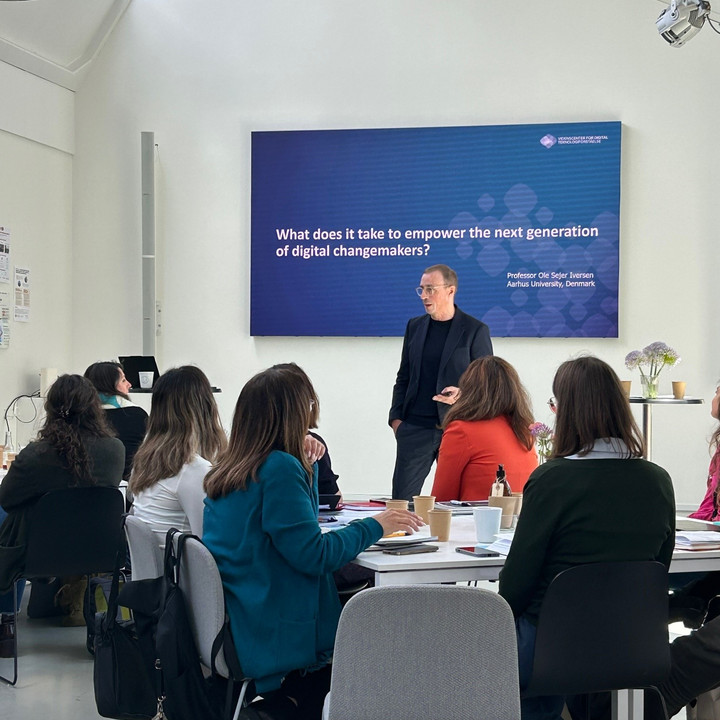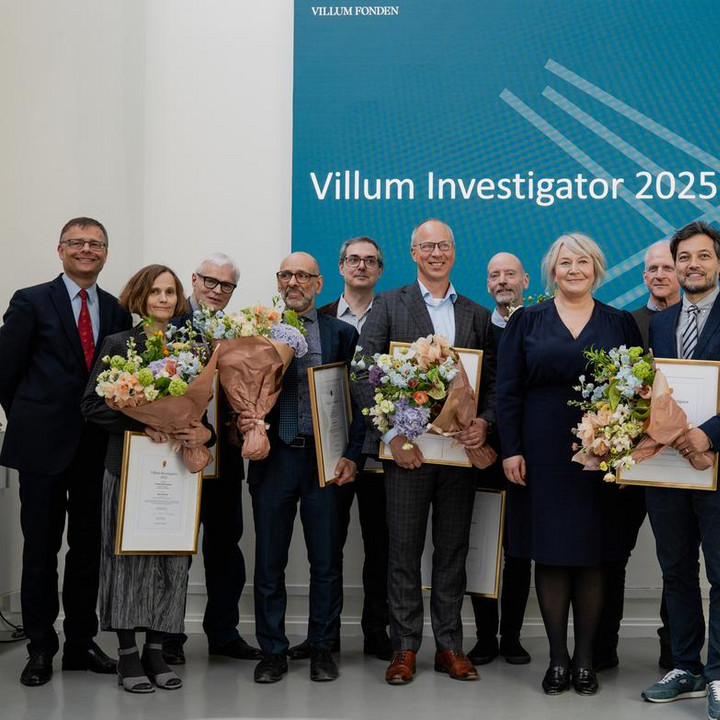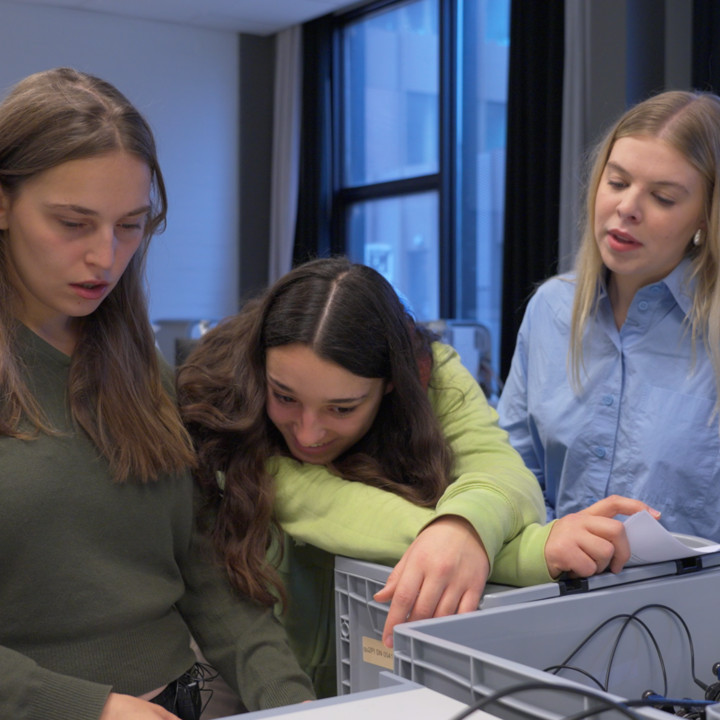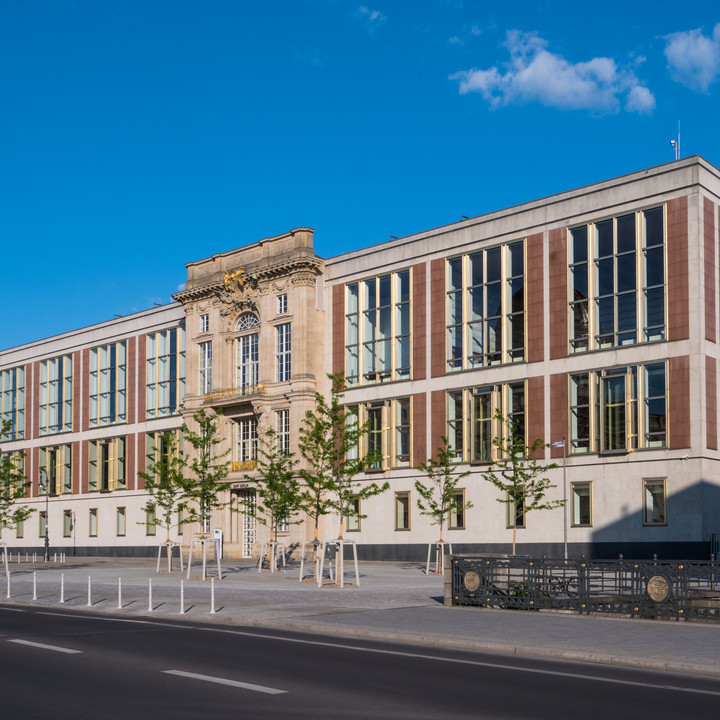126 millioner kroner til at fremme erhvervsuddannelse for Europas digitale og grønne omstilling
Erhvervsuddannelse er en hjørnesten i Europas rejse mod et grønnere og mere digitalt samfund. “Disse projekter blev udvalgt for deres potentiale til at give unge mennesker essentielle færdigheder og samtidig inspirere dem med selvtillid og ambition til at lede denne transformation,” siger Nicolas Schunck, direktør for uddelingsområdet hos Villum Fonden.
I alt har tretten projekter modtaget finansiering – fra initiativer, der støtter NEETs (unge, der hverken er i uddannelse, beskæftigelse eller træning), til projekter, der sigter mod at udvikle bæredygtige og digitale praksisser inden for uddannelse og træning.
Uddannelse som løftestang for inklusion
Mange af projekterne fokuserer på at støtte sårbare og udsatte unge i at få adgang til uddannelse og opnå en direkte overgang til beskæftigelse.
“At integrere unge i uddannelse og arbejdsmarkedet handler ikke kun om at udstyre dem med tekniske færdigheder. Det kræver også, at vi styrker deres selvtillid og udvikler vigtige bløde kompetencer. De udvalgte projekter vil afprøve forskellige tilgange, der er skræddersyet til specifikke målgrupper, og skabe værdifuld indsigt i effektive metoder og aktiviteter,” siger Nicolas Schunck.
For eksempel vil Ecole Gustave i Frankrig åbne tre nye campusser i Paris, Lyon og Marseille, som vil være dedikeret til at uddanne unge i energirenovering. Campusserne vil henvende sig til unge, der er droppet ud af det traditionelle skolesystem, og de vil blive trænet i færdigheder som energieffektivitet, økobyggeri og forståelse af miljøstandarder.
“Denne indsats er en del af en bredere strategi for at imødekomme den kritiske mangel på kvalificerede arbejdere inden for disse højefterspurgte fag. Med bevillingen fra Villum Fonden kan vi forfølge denne strategi og give unge, der har forladt det traditionelle skolesystem, en ny chance for uddannelse,” siger Marie Blaise, medstifter og direktør for Ecole Gustave.
I Italien fokuserer flere projekter på regionerne Sicilien og Apulien og benytter innovative tilgange til at tackle udfordringer med skolefrafald og socioøkonomiske forhold. Initiativerne har til formål at reducere uddannelsesmæssige og sociale uligheder ved at motivere og udstyre unge med de færdigheder, der skal til for at skabe en bedre fremtid.
Et eksempel er RiseVET-projektet, organiseret af CEIPES ETS (International Centre for the Promotion of Education and Development). Denne nonprofitorganisation, der er baseret i Palermo, arbejder på at forbedre de studerendes færdigheder og forhindre skolefrafald gennem engagerende og innovative undervisningsmetoder i tæt samarbejde med lokalsamfundet og myndighederne.
“Bevillingen fra Villum Fonden vil gøre det muligt for os at etablere tre nye undervisningslaboratorier – RiseLabs – på nøje udvalgte erhvervsskoler i Sicilien. Det vil i væsentlig grad styrke vores indsats for at forebygge skolefrafald og forbedre uddannelsesmulighederne for de unge i regionen,” siger Musa Kirkar, direktør for CEIPES ETS.
“Ved at finansiere innovative og inkluderende uddannelsesprogrammer i regioner med udviklingspotentiale ønsker vi at støtte et stærkt europæisk fællesskab, hvor unge europæere er rustet til at møde fremtidens udfordringer,” siger Nicolas Schunck.
Projekterne finansieres gennem Villum Fondens uddelingsområde Unge og uddannelse i Europa.
Villum Fondens uddelingsområde Unge og uddanelse i Europa har til formål at styrke unge europæeres evne til at imødekomme fremtidens udfordringer. Målet er at støtte udviklingen af unges færdigheder til det skiftende arbejdsmarked med særligt fokus på den grønne og digitale omstilling. Der lægges særlig vægt på at sikre, at sårbare unge også får den nødvendige støtte til at deltage aktivt i samfundet og blive selvstændige borgere.
I lige år støtter fonden projekter i Frankrig og Italien, mens der i ulige år gives støtte til projekter i Tjekkiet, Ungarn, Polen og Slovakiet.
De næste ansøgningsrunder i Frankrig og Italien åbner i september 2025 med ansøgningsfrister i 2026.
Læs mere om uddelingsområdet Unge og uddannelse i Europa.
Læs mere om de støttede projekter her (på engelsk):
The Digital Horizons project aims to improve the socioeconomic inclusion of newly arrived migrant and refugee youth aged 16-25 in Piemonte and Friuli Venezia Giulia in Italy. By partnering with certified Vocational Education and Training (VET) and Public Employment Services providers, employers, and non-profits, the project will strengthen existing IT skills development schemes embedded within national employment policies (GOL) to be industry-aligned and inclusive for migrants.
Organisation: International Rescue Committee Italy
Italien
4,1 mio. kr.
The project aims to design and develop a comprehensive VET program that prepares young people to meet and/or anticipate the demands of the job market, especially in green, sustainability, and digital fields. The main project objective is to bridge the gap between the specific skills of young people and the needs of businesses in terms of sustainability within Apulia region in Italy. By offering a specialised training course focused on digital skills as well as social and environmental knowledge, the consortium aims to cultivate an ecosystem of sustainability managers equipped with the skills and practical experience necessary to approach and lead sustainable change within businesses.
Organisation: Project School Campi Salentina
Italien
3,9 mio. kr.
The LIGHT project aims to bridge the education gaps in Catania’s Librino district and Caltagirone, Sicily, Italy. By improving teacher competencies and engaging students through innovative curricula and practical experiences, the project aims to equip young people with the skills and motivation needed to succeed in the evolving job market and contribute to societal challenges, particularly in environmental protection and digital innovation. Integrating these elements into the educational framework will help produce a workforce that is not only proficient in new technologies but also committed to sustainable practices. The project seeks to create a sustainable and replicable model for systemic change.
Organisation: Fondazione AVSI
Italien
7,8 mio. kr.
The project aims to design and implement new free training courses for socially disadvantaged people, with a special focus on migrants in the Lombardo region in Italy. As a VET school, ASLAM will offer orientation activities and design new professional training courses aimed at obtaining a professional qualification, accompanying the social integration of the new migrants through linguistic training, development of active citizenship skills, green and digital skills, safety at work, and technical skills. To do this, ASLAM will structure a network for reception communities, provincial education centres, municipalities, and other social associations.
Organisation: ASLAM Cooperativa Sociale
Italien
11,5 mio. kr.
The RiseVET project aims to equip students with new skills and introduce them to emerging professions in the labour market related to the twin transition in the Sicilian region in Italy. The project builds on the success of the existing RiseLab facility in Palermo and seeks to scale and replicate it in schools throughout the region. A dedicated project line addresses the school dropout phenomenon by facing it through school and work orientation activities for students, engagement with families and teachers to expand the educational community, and the active involvement of students in creating RiseLabs. Additionally, the project will feature a dedicated dialogue section on a newly developed app. To this purpose, teachers will be trained in non-formal education, career guidance techniques, and the use of RiseLab facilities to help prevent dropout. Lastly, the project will also enhance the skill levels of students, making them more prepared for careers related to the twin transition.
Organisation: CEIPES ETS
Italien
8,9 mio kr.
The overall aim of the project is to raise the quality of vocational education in the Apulia region in Italy by strengthening staff skills through blended teacher learning courses and updating the training facilities with a focus on STEM and the green transition. The actual training modules will be designed with input from relevant public and private stakeholders. The courses have a progressive and cumulative learning outcome structure, consistent with a certification and micro-credential approach. The expected products are the development of training units, including learning materials, the renewal of the learning spaces to be more sustainable and energy efficient, as well as the creation of some outdoor green education laboratories, all of which will be provided with new equipment.
Organisation: Scuola Centrale Formazione
Italien
11 mio. kr.
The project aims to ensure that the twin transition does not create a gap between the north and south of Italy. To ensure this, the project has two overall goals: The first goal is to enhance La Cometa Società Cooperativa Sociale’s (Oliver Twist School) education ecosystem in an innovative and inclusive way by the acquisition of digital and environmental skills and technology tools for both students and teachers. The expected results are that students acquire relevant skills for the job market, increase efficiency, and increase the use of digital tools. The second goal is to strengthen and extend the educational model. As part of the second goal, the education model will transfer know-how to Scuola del Fare by promoting a mutual exchange of knowledge.
Organisation: La Cometa Società Cooperativa Sociale
Italien
11,6 mio. kr.
The SEEDS project aims to promote the professionalisation of training paths that can contribute to raising awareness, advocating against, and promoting mitigation actions to climate change in the Bari-Cerignola region and in the Palermo-Catania region in Italy. The VET providers CNOS-FAP Puglia and CNOS-FAP Sicilia will enhance their educational offer based on supervision from universities. Concretely, two new educational paths will be created while at the same time raising awareness of institutions and the entire community on the issues of sustainability and legality.
Organisation: Salesiani per il Sociale
Italien
10,4 mio. kr.
The CareSphere project aims to transform education in the care services sector through innovative pedagogy and cutting-edge technology in the Provence-Alpes-Côte d'Azur region in France. By merging physical and virtual environments, the initiative enhances training quality while integrating eco-friendly and digital practices. CareSphere features immersive simulations, workshops, and online courses to enrich the skills of students, trainers, and professionals. CareSphere tackles challenges such as the low appeal of care professions, skills shortages, and the need for sustainable and digital integration. Objectives include boosting student engagement, improving training quality, and embedding sustainable practices. Activities involve partnering with institutions, building the CareSphere lab, training trainers in new technologies, developing innovative modules, and conducting experiments.
Organisation: Chamber of Commerce and Industry Nice Côte d'Azur
Frankrig
4.4 mio. kr.
The project takes place in two priority urban districts of Lille Metropole in France. La Fabrique de l'Emploi aims to set up an innovative vocational training and peer-to-peer tutoring programme for young jobseekers to reintegrate them into the labour market. The target group is mainly young people who are not in education, employment, or training (NEET). The courses provide technical skills in decarbonising buildings, as well as social skills in the workplace. Most of the training takes place as company training modules on worksites covered by contracts awarded under social clauses to Fabrique de l'Emploi or to integration projects. On the sites, the tutors are employees of La Fabrique de l'Emploi, all former long-term jobseekers living in the project area. This project creates mutual recognition between people in difficulty from the same neighbourhood, recreating an intergenerational social link through work.
Organisation: La Fabrique de l'Emploi
Frankrig
9 mio. kr.
The ECHO B.I.O project takes place in Mouchard in Eastern France. The project aims at promoting innovation and research in the field of green building through two main components: 1) creation of a centre of excellence for professional training in building trades in the areas of ecological, energy, and digital transition. The centre will be a collaborative space for researchers, trainers, learners, and professionals to develop new technologies and sustainable practices in construction. The goal is to advance the state of knowledge on the in-situ and long-term performance of these materials (efficiency, longevity, health impacts), as well as their social benefits (local economic development, circular economy). 2) Setting up a National Engineering and Pedagogical Innovation Laboratory, dedicated to experimenting with new pedagogical approaches that integrate the challenges of the green and digital transition.
Organisation: Fédération Compagnonnique Nationale
Frankrig
11,1 mio. kr.
The project aims to establish a training facility in Marseilles, France, focused on VET professions related to heritage and eco-construction. This includes site restoration and development. The project will unite stakeholders in the energy transition trades sector to share skills needs and raise youth awareness. The project additionally aims to create a trainers’ training programme for solar energy as a pilot VET track, which will have pedagogical transferability to other energy-related education areas. Where applicable, the project will seek to formalise the energy transition trade education programmes by seeking national accreditation. The overall expected results thus include the development of tailored training pathways for emerging professions, increased employment opportunities in sustainable sectors, and the dissemination of knowledge and practices beyond the project's anchoring.
Organisation: Bao Formation
Frankrig
14,9 mio. kr.
The project Gustave Green Transition Academy will open three new campuses dedicated to the training of young people in the energy renovation professions. With the launch of energy transition academies in Paris, Lyon, and Toulouse, the project will train young people in renovation technologies covering renewable energies, energy performance methods, eco-construction, and understanding ecological standards. The campuses will target young people who have dropped out of the traditional schooling system and introduce them to the skills of tomorrow's technicians. Campus activities include raising awareness and introducing careers in the ecological transition, multitrade training courses, promoting mobility from other cities, and involving professionals and their equipment in training.
Organisation: Ecole Gustave
Frankrig
16,8 mio. kr.



